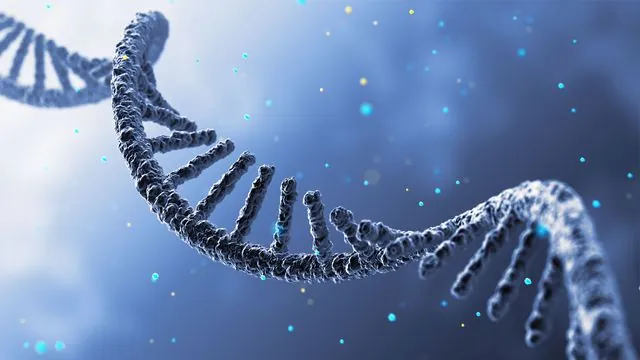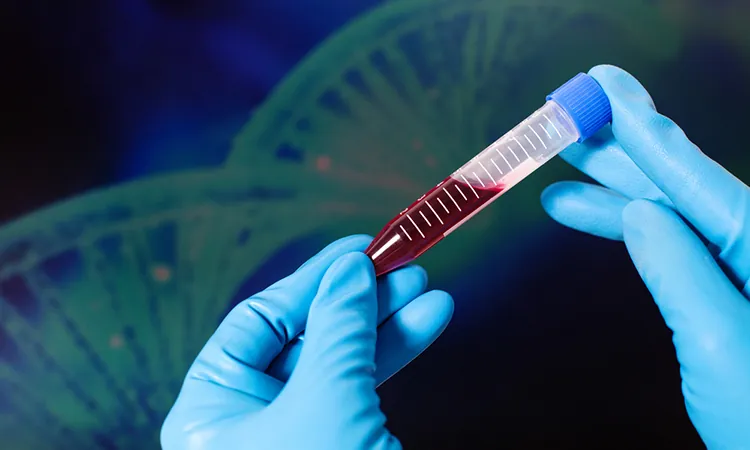
Groundbreaking Discovery in DNA and RNA Epigenetics Opens New Doors for Cancer Therapy
2025-01-20
Author: Siti
Significant Advancement in Genomics
In a significant advancement in the field of genomics, researchers have unveiled a compelling connection between DNA and RNA epigenetics. These findings could revolutionize our understanding of gene regulation and offer transformative implications for cancer treatments.
The Role of Epigenetics
Our genes hold the blueprint necessary for our body’s functionality, but it's crucial that their expression is precisely managed. This management is facilitated by mechanisms known as epigenetics, which serve as "markers" that influence gene activity without altering the underlying DNA or RNA sequences. Traditionally, DNA and RNA epigenetics were treated as separate entities, each engaged in distinct phases of gene regulation. However, new research suggests that these systems might work in tandem, showcasing a complementary regulatory framework.
Research Findings
Led by Professor François Fuks from the Laboratory of Cancer Epigenetics at the ULB Faculty of Medicine, a recent publication in the esteemed journal *Cell* reveals that the interplay between DNA and RNA epigenetics is more intricate than previously believed. The study outlines how simultaneous application of both markers enhances gene activation significantly, while malfunction in either system can lead to decreased gene activity. This discovery is particularly crucial during essential developmental stages, such as the differentiation of embryonic stem cells into specialized cell types.
Implications for Cancer Therapy
The implications of this dual-layered regulatory mechanism extend beyond cellular biology; they cast new light on the pathophysiology of diseases, especially cancer. Researchers point out that disruptions in these epigenetic controls can contribute to cancerous transformations, revealing a critical avenue for therapeutic intervention.
The Future of Cancer Treatments
The potential for targeted cancer treatments based on this newly understood regulatory system is immense. Scientists are optimistic about developing "epigenetic drugs" that can concurrently address both DNA and RNA epigenetic markers. This dual approach aims to craft more precise, personalized therapies tailored to restore equilibrium in malignant cells, enhancing treatment efficacy for cancer patients.
Ongoing Research and Clinical Applications
As Professor Fuks and his team press forward with their research, they are actively exploring the clinical applicability of these findings. Their ongoing studies aim not only to validate the therapeutic potential of epigenetic strategies but also to pave the way for innovative cancer treatment modalities that could change patients' lives.
Conclusion and Future Prospects
This research, published on January 17 in *Cell*, marks a groundbreaking step in our understanding of gene control, opening vistas of possibility in the realms of biology and medicine. As scientists delve deeper into the interconnections of DNA and RNA epigenetics, the dream of more effective cancer treatments may soon become a reality, illuminating a path toward better health outcomes for millions battling this formidable disease.




 Brasil (PT)
Brasil (PT)
 Canada (EN)
Canada (EN)
 Chile (ES)
Chile (ES)
 Česko (CS)
Česko (CS)
 대한민국 (KO)
대한민국 (KO)
 España (ES)
España (ES)
 France (FR)
France (FR)
 Hong Kong (EN)
Hong Kong (EN)
 Italia (IT)
Italia (IT)
 日本 (JA)
日本 (JA)
 Magyarország (HU)
Magyarország (HU)
 Norge (NO)
Norge (NO)
 Polska (PL)
Polska (PL)
 Schweiz (DE)
Schweiz (DE)
 Singapore (EN)
Singapore (EN)
 Sverige (SV)
Sverige (SV)
 Suomi (FI)
Suomi (FI)
 Türkiye (TR)
Türkiye (TR)
 الإمارات العربية المتحدة (AR)
الإمارات العربية المتحدة (AR)